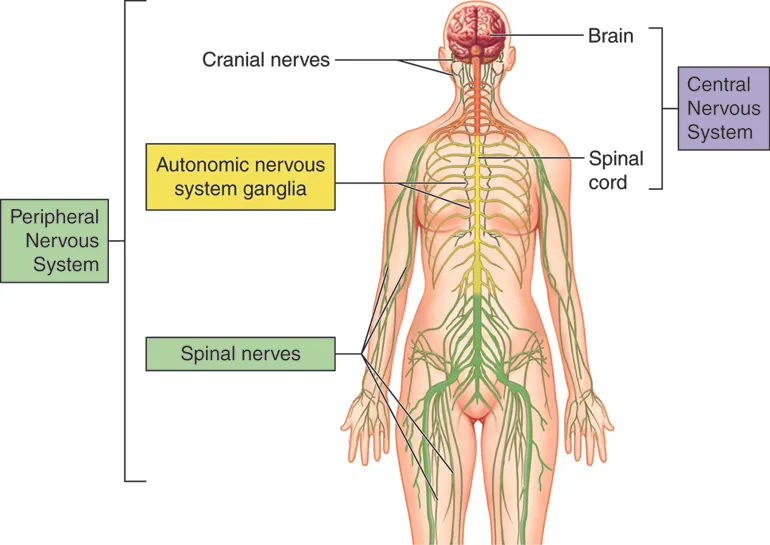My friend has been applying to different job roles for sometime now but nothing was coming forth, he finally got invited to the interview stage for a certain role and we were all so excited about it, he went for the interview, and since he is a very smart guy, we did not doubt his ability to perform well in the role, the interview date came and he performed excellently well with the interview that he was immediately offered the role and given a date to resume.

pexels.com
On the supposed date of resumption, he was abruptly given another test he was not prepared for, with a glance at the questions he was asked to answer, he knew he could perform well and so he started to attempt the questions one after the other, but before he could finish with the questions, the time given was up and the role was denied. This was a job role we all had celebrated about and we were thankful he got because he is a very smart and hardworking young man, this was a really sad news to everyone.
If I could feel as bad as he felt, I can only imagine how disappointing he must also feel. The good thing is that, it is a remote job so he didn't have to drive all the way back home after that happened, he immediately came out of his work space, had his head down and all I could think about is what must be running through his mind at the time, as the job was supposed to serve as a consolation for all the bad things he had experienced this year.
I know that, like my friend, there are so many people who have to go through disappointing situations on a daily basis and I became curious to know what happens to the human body after a disappointing episode, it i going to be an interesting discovery, so let's get on the journey together.
The brain is responsible for the control of our feelings, either it is a good or a bad feeling. The feeling of disappointment is caused by the firing of two neurotransmitters in the brain, glutamate and the GABA. The mentioned neurotransmitters act in an opposite manner, as one is excitatory in nature whole the other is dampening.
Happiness is triggered when more of GABA is fired compared with glutamate, if the amount of glutamate on the other hand is fired, it would lead to a point of disappointment or sadness in the individual.
Neurotransmitters are special and imagine how much power they have over our mood, let's get to meet them and know them better. Neurotransmitters are special chemicals in the body, these chemicals relay information between neurons. Everything that happens to every human is caused by numbers of neurotransmitters, which are responsible for the facilitation of different emotions and thoughts experienced every minute of the day. Researchers have argued that, it is quiet rare to have a simultaneous dual firing of neurotransmitters in the brain.

pressbooks.ccconline.org
One of the rare cases of having two neurotransmitters fired in the brain at the same time, is when we have a created case of disappointment. This case is even more interesting as two neurotransmitters involved are opposite in nature (check details of this in the previous paragraph if you skipped it), so let's go ahead to check out the neurotransmitters we are trying to describe.
Glutamate: According to the research led by Dr. Roberto Malinow, it was found that these neurotransmitters are fired at the same time in a very little region of the brain known as lateral habenula.
It is actually really expected for you to feel so down and hurt after a disappointing experience as disappointments alters the balance of the neuronal universe contained in the brain. You will agree with me that the feeling of disappointment and frustration are greatly alike, when your car suddenly stops on the road, when your appointment is cancelled, or in the case of my friend, when you suddenly loose a job, our activities in life are surrounded by the possibilities of disappointments and frustrations. Neuroscientists have discovered that before any case of disappointment, the neuronal jolt happens first, where there is a sudden decrease in serotonin, dopamine and endorphins, so at these point all the molecules that should be responsible for your well-being, leaves the brain for that period.
So, regardless of the fact that, disappointments are a part of our daily existence, our brain does not still take it well and this is simply because, existing social and emotional principles are known to rule these organs and it always seeks safety, as it makes effort to be a part of something or someone in the most predictable way that it can.
We notice that, disappointments are often accompanied with tiredness, numbness, and heaviness, this happens according to established research because the body obviously releases endorphins in order to relieve pain as much as it can, the brain on the other hand does not respond to disappointment with the release of endorphins, instead it ends up somatizing (converting) the feeling into; physical pain, muscle tension and migraines as often experienced.
Can this feeling be controlled?
One of the strong ways of limiting the impact of the experiences is to consciously direct them towards your cerebral cortex, which is only possible if you choose not to reason the issue, you must also learn how to focus on them from a subjective point of view. It clearly isn't easy to get this accomplished, however it is the best thing to do especially if you do not want to move into a stage of depression. Do not blame the situation on anyone, adjust your expectations and look forward to other opportunities that may present themselves. It is usual to forget these things and get out of those feelings after that stage may have been overcome.
References.
https://exploringyourmind.com/disappointment-and-your-brain-why-it-hurts/
https://www.thecut.com/2016/11/the-chemistry-of-addiction-explains-why-disappointment-hurts.html
https://www.livescience.com/48022-disappointment-brain.html
https://www.scientificamerican.com/article/depression-tweaks-the-brain-s-disappointment-circuit/
https://www.vice.com/en/article/bmn3w4/what-disappointing-news-does-to-your-body

Hi, I am Tobi a writer, speaker, relationship blogger, and lover of good music. I love making friends and learning from people. Want to hear me speak on relationships and general life issues, you can find my podcast channel Here and I also have a youtube channel where you can listen and watch any episode for free, do not forget to subscribe and share with friends. I sincerely appreciate every love I get from members of the community and do well to keep them coming.
,